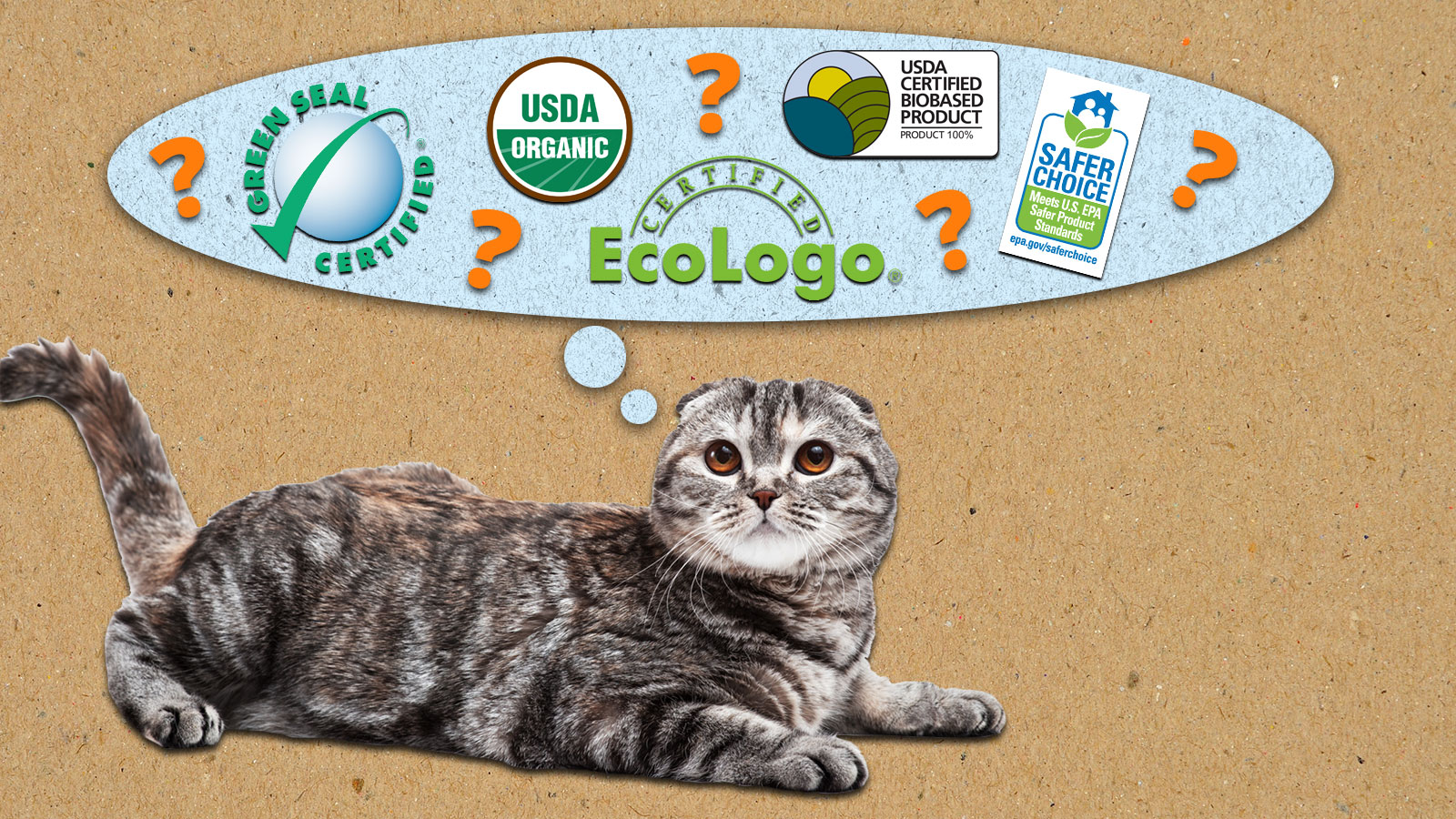Q. Dear Umbra,
My question is about a cleaning product called [redacted]. On the front it says it’s 100 percent organic, biodegradable, eco-friendly, green, and mom-approved. On the back it says you can use it on skin and hair and it has “no harmful vapors.” Do the words on their label have any real meaning?
Chris R.
Middlebury, Vt,
A. Dearest Chris,
You wrote in with a specific product in mind, but I’ve hidden its name for one very important reason: eco-claims abound these days on all sorts of cleaning products, not just this one. Some of them are meaningful, some are not, and we have to do our homework to be able to tell them apart. Luckily, I was the kind of child who actually liked cracking the books, so I can help.
Let’s start with the eco-labels (the official, if somewhat clunky, term for these types of claims) that really do matter. Organic is one of them, but only if you see the green and white, USDA-certified seal on the package. This means the cleaner meets government standards set for agricultural products: grown without the use of synthetic fertilizers or pesticides, no GMO ingredients, etc. If the cleaner just says “organic” without the USDA part, then, well, we don’t know what it means. That’s because nobody is really checking up on “organic” claims for cleaning products. There are a few brands with legit organic labels (like this one and this one), but generally you don’t find this certification on household cleaners.
Another eco-label with real weight behind it is Green Seal, one of the strictest third-party certifications out there. It considers product effectiveness, toxicity, safety, ingredient transparency, and even the environmental friendliness of the packaging; find a list of potions that make the grade here (and there aren’t many of them). ECOLOGO is another solid choice, as this third-party certifier makes sure products pass scientific tests on similar criteria (look for approved cleaners here).
The EPA’s Safer Choice label (formerly known as Design for the Environment) also tells us something meaningful: All the product’s ingredients have been vetted for safety for both people and the planet. And if a cleaner sports the newish USDA-Certified Biobased Product label, we know that it contains a specified percentage of ingredients from plants or other renewable resources (animal and marine life, specifically), not petroleum — it’ll say how much right on the package. If you can find a cleaning product with one or more of these badges, Chris, you can be confident you’re making a better choice.
Now, on to the Greenwashing Hall of Shame. Unfortunately, all too many of the virtuous-sounding adjectives tossed around on product packages are like a lush mirage in the desert: They sure look great, but in the end, there’s nothing there. Among them: “natural” and “green” (so vague as to be utterly meaningless); “non-toxic” and “biodegradable” (they sound scientific, but nobody actually regulates these terms); “plant-based”; and “eco-friendly,” “environmentally friendly,” “environmentally preferable,” “environmentally in the Friend Zone but hoping for more,” etc. Just because a product touts one of these dubious designations doesn’t necessarily mean it isn’t a better choice, but without any real standards or regulatory bodies behind these words, we have no way of knowing.
Oh, and of course, my favorite ridiculous bona fide from your cleaner, Chris: “mom-approved.” Whose mom? I hope she’s a scientist with some solid training in lifecycle analysis, at the very least. Without this mom’s name and resume, though, I for one just can’t trust her.
I’m afraid I haven’t offered much comfort in terms of the product already on your shelf, Chris. But here’s a bit of solace before I put down the laptop for the dustmop: there is actually one cleaning concoction you can feel very happy and confident about. My favorite method for making sure your cleaning products are on the level: Make your own! Baking soda, vinegar, castile soap, and lemon juice really do work wonders in all sorts of different situations, no confusing label tomfoolery necessary.
Certifiably,
Umbra



